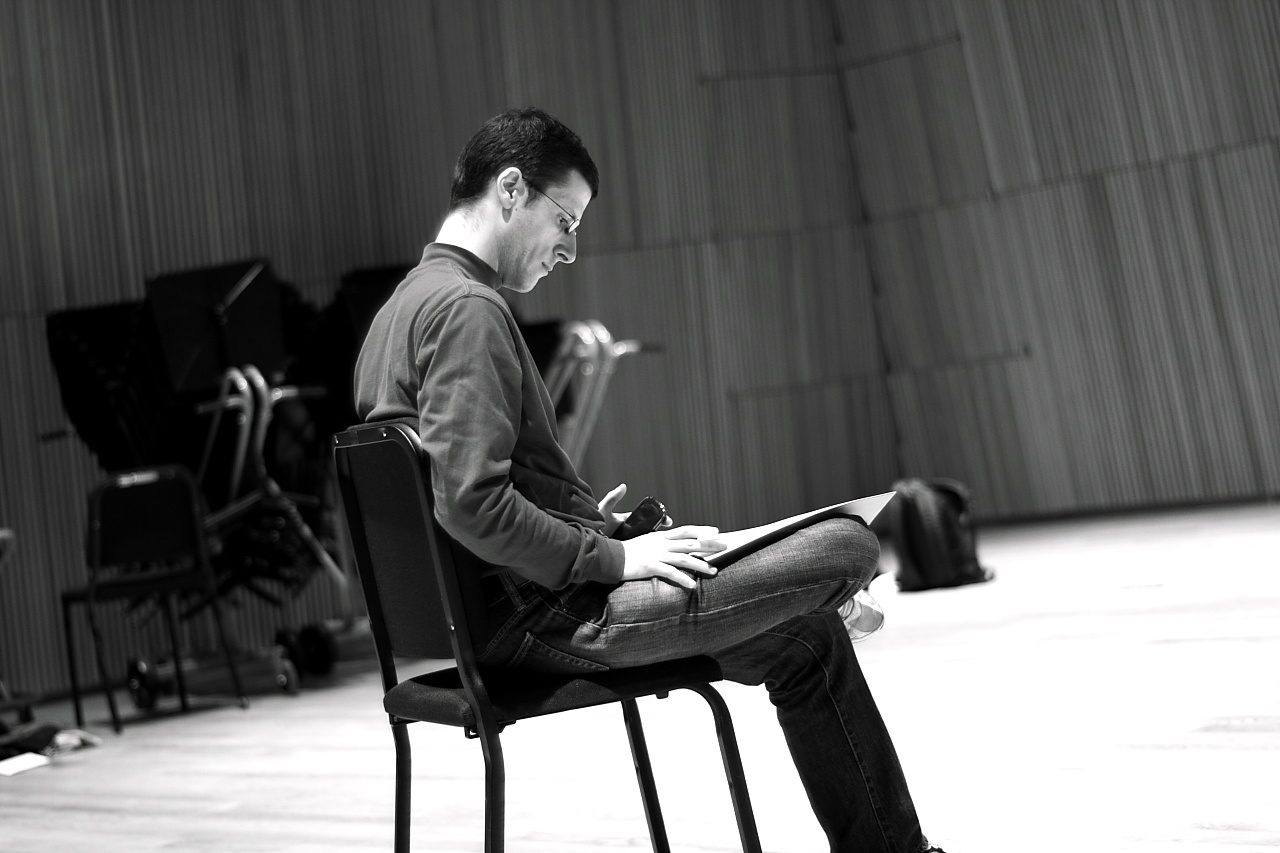New works push off at Bargemusic’s Here and Now Festival

Seasons come and go, the school year starts and ends, the sun rises and sets, but Bargemusic abides. The classical music hall that floats off the Fulton Ferry landing is not only one of the most pleasant venues in New York city, but the most stalwart, with concerts almost year round.
For Labor Day weekend Bargemusic continued its recent tradition of presenting new compositions via the Here and Now series. The latest mini-festival concluded Sunday afternoon with a range of solo and chamber pieces — all premieres with the exception of Stanley Walden’s Deadications, which was being heard in New York for the first time.
With brand new music, there is always the danger that the quality of the performance will obscure that of the composing, and there was some of that Sunday afternoon. The piano four-hands team of Ursula Oppens and Jerome Lowenthal opened the concert playing Jonathan Howard Katz’s Crescive Waltzes, and the experience dipped in and out of clarity and murk. The music had more to do with memory than dancing — there was an unexpected amount of haunting lyricism — but though it didn’t seem in any way technically demanding, the performance felt unsure, and smacked of too little preparation.
Oppens played Paul Chihara’s The Storm, an energetic bit of sound-painting, with rolling chords and rhythms taking one away from the lovely day outside the barge. Modest, but self-contained and effective, and closing with a witty quote from Beethoven’s “Storm” Sonata, Op. 31, No. 2, the music brought more life to the proceedings.
None of which was reduced by Walden’s tributes to the departed, including composer Jacob Druckman and his wife Mickey, and theater figures George Tabori and Jacques Levy. Pianist Daniel Schlosberg played these six miniatures with assurance and expression, and through him one was impressed by the skill with which Walden explored a range from the parlor Americana of “In Memory of … What Happened” and “ … Like a Mountain Railroad,” as well as the aphoristic atonality and impressionism of “The Mothers” and “Cancion Sin Palabras.”
There was greater variety in the final three pieces, mainly via instrumentation. Medusa’s Lair, from Marty Regan, left the strongest impression, and not only for being a piece for solo shamisen, played with focussed drive by Yoko Reikano Kimura. The composing showed both technical command of the three-stringed Japanese banjo, and a deeper idiomatic feeling for the narrative and ritual use of the instrument. Kimura conveyed the precise intensity of the piece, which spiraled into a well of drama.
Jonathan Cziner’s Still, moving, was more conventional, a theme and variations work based on the Bargemusic experience, a still place floating gently on the waves. This was played by the cello-piano duo of Julian Schwarz and Marika Bournaki, welcome mainstays at the venue. The piece was lyrical and unassuming, and the musicians honored it with a dedicated interpretation, Schwarz’s grainy, singing sound bring out the last possible bit of expression.
David Taylor is a mainstay at the barge, both as a composer and a bass trombonist. Sunday he was accompanied by the excellent pianist Kathleen Supové, supporting his Soul Mates. As Taylor introduced it, this was a piece based Book III of Ovid’s Metamorphosis, in which Jupiter and Juno have a battle of the sexes over sex, with Tiresias as the punching bag.
As music, this fell out into two parts. The first had Taylor tossing off phrases, many of which were effective but with none coming together into any kind of form. Done with that, Taylor grabbed a megaphone and began narrating bits of the story, interrupting himself to play a bit of trombone, this going back and forth for a while until it stopped. The was no discernible connection between Ovid and the reason for the notes Taylor played, and Supové was given nothing interesting to do.
Timo Andres plays his own music and that of Schubert and Glass, 7 p.m., September 6, at Bargemusic. On September 11, there will be free memorial concerts at 7 and 8:30. bargemusic.org


